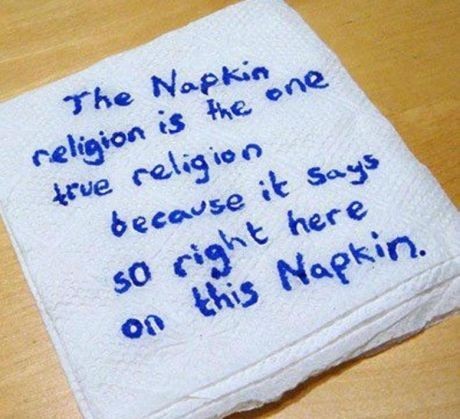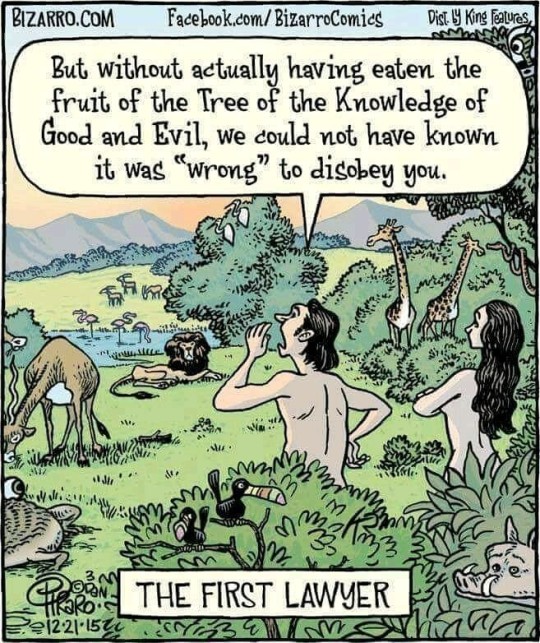#agnostic
Text
Sometimes people demand you justify being an atheist with a 200 page well-sourced thesis on biblical scholarship but one of the reasons I am not a Christian anymore is so fucking simple. It made my life worse. It made me unhealthy mentally. I’ve grown one thousand times more as a person without it. If it were really the one true wisdom from an all knowing infinite god, it would make my life better. And that’s enough proof for me. And it’s a valid reason.
#deconstruction#ex christian#ex evangelical#agnosticatheist#deconstructing christianity#agnostic#ex religious#exevangelical#leftist#religious trauma
139 notes
·
View notes
Photo

#witch#witchcraft#witchy#pagan#witchyvibes#magick#magic#wicca#witches#witchery#witchy things#witchcore#atheism#atheist#agnostic#antireligion#anti religion#agnosticism#godless#exchristian#anti theism#anti theist#nonreligious#non religious#religious trauma#secularism#religion#books#reddit#WitchesVsPatriarchy
5K notes
·
View notes
Text
It's funny how certain religious people act like accepting LGBTQ rights will lead to paedophilia being normalized when they've already let that shit slide for centuries.
Then again, what else do you expect from people who value religion over the rights of children?
Don't let them trick you into thinking they care.
#ex religious#ex christian#ex religion#religious trauma#religious deconstruction#deconstructing christianity#ex pentecostal#deconversion#apostate#ex fundie#ex muslim#exvangelical#ex evangelical#christian fundamentalism#ex fundamentalist#ex mormon#ex catholic#ex jehovah's witness#ex jw#agnostic#ex upci#lgbt#lgbtq
777 notes
·
View notes
Text
me when i realize. i can worship deities without 100% believing in them because the concept of them and things they represent are real either way
144 notes
·
View notes
Text
Religious conservatives love talking about trans people “mutilating their genitals” and then go off to circumcise their children without their consent 😇
#agnostic#atheist#ex christian#atheism#apostate#exvangelical#ex catholic#religious trauma#agnosticism#exchristian#excatholic#exmuslim#ex muslim#trans rights#trans activism#text#V writes
743 notes
·
View notes
Text
Feel free to rb for more varied input
#religion#ex catholic#recovering catholic#catholic#chriatian#jewish#judaism#muslim#islam#Spiritualism#spirituality#neopaganism#pagan#wiccan#wicca#paganism#atheisim#atheist#agnostisizm#agnostic
443 notes
·
View notes
Text
Atheist memes😂
















#Atheist#atheism#Memes#Funny#Lol#Hilarious#Funny tweets#Funny quotes#Religion#Funny atheist#politics#funny memes#humor#Funny stuff#anti religion#agnostic
497 notes
·
View notes
Text
Anyways its a lie that people will become greedy, ignorant, or violent if they build their life on humanity and community instead of submission to a deity
69 notes
·
View notes
Text
Christians will demonize people who deconvert as just angry bitter atheists to discredit them. But remember it’s valid to be angry after leaving the church. Anger is often your body telling you your boundaries were crossed. Emotions serve a purpose, they aren’t bad.
#deconstruction#agnosticatheist#agnostic#ex christian#ex evangelical#ex religious#deconstructing christianity
520 notes
·
View notes
Note
Agnostic BPD culture is not having a specific belief about the afterlife but wishing with all your heart that reincarnation is real because there has to be a life I can live that isn't this, I don't want my only chance to be this
.
#mood#agnostic bpd culture is#agnostic bpd culture#borderline culture is#borderline personality disorder#bpd#bpd culture is#bpd culture#bpd safe#actually borderline#actually bpd#agnostisizm#agnostic
62 notes
·
View notes
Text
If god is unable to prevent evil, then he is not all-powerful.
If god is not willing to prevent evil, then he is not all-good.
If god is both willing and able to prevent evil, then why does evil exist?
If god created everything then that means he created evil. And if that is the case what does that say about god?
#atheism#atheist#agnostic#antireligion#anti religion#agnosticism#godless#exchristian#anti theism#anti theist#nonreligious#non religious#religious trauma#secularism#religion#atypicalreads#books#intelligent design#mythology#checkmate theists
554 notes
·
View notes
Text
Children don't need religion to develop good morals. I'd argue that certain religions get in the way of that because they encourage you to do things because a deity approves and it will lead to you having a good afterlife or whatever. And I don't know about you but I find that to be self-serving.
Not to mention, the fact that religion can advocate for immoral things.
Let's just teach children to be good just because.
#ex religious#ex christian#ex religion#religious trauma#religious deconstruction#ex pentecostal#deconstructing christianity#ex fundie#ex muslim#deconversion#agnostic#ex catholic#ex fundamentalist#ex jehovah's witness#ex jw#ex jew#ex mormon#ex evangelical#exvangelical#ex hindu
640 notes
·
View notes
Text
I think it’s weird how there’s a double standard when it comes to atheists. So if i tell a religious person that i’m atheist, they’ll start interrogating me about my life. They would just assume that my atheism is because of some trauma that happened to me.
And then they would assume that atheists know everything about the universe. They would show you a phenomenon or whatever and tell you to explain it. And if you don’t know, they’ll think it’s a “gotcha” moment. Yet they allow it when people who identify with their religion barely know anything about it.
Like you can’t expect an atheist to debate with you anytime. We’re not omnipotent. We don’t know every single thing about the world, just like they don’t know every single thing about their religion. They’re holding us on a higher standard. And the reason is obvious.
#atheist#agnostic#ex christian#atheism#exchristian#apostate#religious trauma#agnosticism#ex catholic#ex muslim#text#V writes
409 notes
·
View notes
Text
Judas Iscariot: The Queer Iconoclast's Icon
With queer acceptance on the rise (at least compared to past decades), the experience of coming out of the closet has changed significantly. Coming out is often an occasion that calls for celebration, Pride is a corporate parade celebrated in every state with at least one major city. But for many queer people, particularly in the evangelical American south, coming out remains a traumatic ordeal (this is especially true for transgender youth). Coming out as queer means coming out as a liar and a traitor to everything you were raised to uphold. Within evangelical theology, one cannot embrace queer identity and be a Christian. One cannot belong in their community if one is not a Christian. To embrace your own queerness you must become an apostate in their eyes. To become an apostate is to be effectively excommunicated. With this experience in mind, it is not surprising that many queer people from Christian backgrounds have embraced the figure of Judas Iscariot.
An icon is an image of religious or political significance, and an iconoclast is someone who shatters an icon. For the purposes of this post, I am going to focus on icons representing saints and martyrs. The image and the person represented are both referred to as icons. The person depicted in the icon is an aspirational figure that one is meant to be inspired to emulate, a shorthand representation of a person at their idealized best. (This is not necessarily a bad thing, nearly every culture has icons of their own. Familiar queer icons include the likes of Marsha P. Johnson, Leslie Feinberg, and Sappho of Lesbos.) However, being upheld as an icon is not the same as being known as a full person. The icon is an inherently incomplete representation and can never be a complete, nuanced person.
A common experience among queer people, particularly in religious communities, is feeling the need to hide a part of themselves. But no matter how it manifests, queerness is not easy to hide and it only gets more painful over time. Being in the closet is more than simply neglecting to mention a preference. To be in the closet, first a closet must be built. Walls need to be constructed to protect ourselves from people who love us, and the most readily available materials are lies, secrecy, and deceit. While our real selves hide behind the constructed identity, the person we present as is one that meets the hegemonic expectations of cisgender heteronormativity, or at the very least respectable abstinence. The icon is a pretty picture, and we are rewarded with acceptance, but the fear of being outed is a prison. The only way to escape is to shatter that icon.
Very little is known about Judas Iscariot within biblical canon. He seems to have been largely erased from the narrative outside of his famous betrayal kiss. The authors of the gospels did not see his experiences as relevant to the story, despite the magnitude of his role. To them he was nothing outside of a traitor. In popular culture his name is synonymous with betrayal, and his portrayal in biblical art is unflattering at best. Judas’s erasure is similar to what many queer people who are disowned by their family experience. Their picture is taken down from the wall and Judas’s story is unwritten. The life and love they shared with their family, everything about them that was inoffensive before is irrelevant. Judas is erased and so are they. All that remains is his icon, an image of a cold, heartless man who hated God and betrayed an innocent man.
One can easily speculate about Judas. It seems unlikely that he spent years in Jesus’s ministry scowling in the shadows and plotting his demise. He could not have truly betrayed Jesus if Jesus did not trust and love him. Some apocryphal literature suggests that Jesus was closer to him than the other disciples and personally asked him to turn him in so that his mission could be completed. In this interpretation, Judas’s betrayal is an act of sacrifice and devotion, sealed with a kiss. And people think he deserved to suffer in hell forever for it. Modern retellings are often more sympathetic to Judas. Many are told by secular artists (Jesus Christ Superstar, The Last Temptation of the Christ, Judas (Boom! Comics)), but notably The Chosen, which is created by an evangelical studio, has taken humanizing approach to his character. Through this media he has been given a new image and become a completely different icon.
A queer relationship with spirituality and religion is often complex and deeply painful. Progressive theology can be healing and while I am not Christian myself I do enjoy engaging with it, but it doesn’t change the fact that this year at Pride, three different people told me that I deserve to burn in hell as they held a Bible in the air. I went to a Christian college and I had friends who were afraid of losing their scholarships if they were outed. I attended a protest against banning books at my local library and was called a groomer to my face. These are people that shop at the same grocery stores that I do and ask me what church I attend when I am in line at McDonald’s. One man openly sneered and turned away when I answered I was attending an Episcopalian church at the time. The people around me have made it abundantly clear that queer people are not welcome in their heaven. If Judas is in hell, he will find good company.
#jesus christ superstar#judas iscariot#evangelical christianity#lgbt#queer#religious trauma#exvangelical#agnostic#homophobia#lgbtq issues#the chosen#the chosen tv series
140 notes
·
View notes
Text
it is crazy to me that if you tell your child their whole life that they are evil, broken, inherently awful human beings its considered emotional abuse.
but under christianity its just freedom of religion.
no child should belive that about themself.
d.d
#deconstructing christianity#deconstruction#mental health#deconstructing religion#deconstructivism#ex religious#ex christian#ex fundie#ex fundamentalist#ex evangelical#tw abuse#emotional abuse#religion#religious trauma#religious abuse#toxicfamilly#deprogramming#mentalhealth#self worth#agnostic#atheist#atheism#agnosticism
32 notes
·
View notes